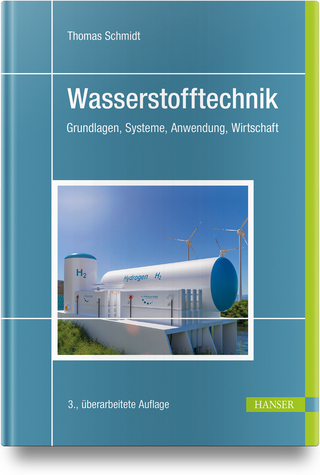
Greening Water Risks
Springer International Publishing (Verlag)
978-3-031-25307-2 (ISBN)
Nature-based solutions are proposed as a valid way to address risk and adapt to climate change while increasing resilience through the multiple benefits they generate. However, in spite of the widespread academic and political support for NBS, their implementation is lacking. As key barriers to implementation there are institutional and regulatory barriers, an absence of clear evaluation of NBS performance, funding/financing barriers and knowledge and acceptance barriers.
This Open Access book provides a hands-on guide to overcome these barriers, through the stepwise creation of nature-assurance schemes that operationalize the insurance value of ecosystems. At the basis thereof is an integrated biophysical, economic and social assessment which is integrated with implementation considerations through the generation of business models and blended funding and financing schemes.
This book will be of interest to practitioners and researchers who want to better understand how to operationalize the insurance value of ecosystems. The book provides 9 DEMO examples on the application of this method across different scales: urban, medium and large catchments and target both floods and droughts.
lt;b>Dr Elena López Gunn is the Founder and Director of ICATALIST, a Spanish start up specialized in climate change adaptation and sustainability. She is also Lead Author for WGII of the IPCC and Member of the European Scientific Advisory Board on climate change. In the past she worked at the London School of Economics as an Alcoa Research Fellow, focusing on water governance and collective action to achieve sustainable water management. She has worked at the Water Observatory of the Botin foundation, a Think tank undertaking targeted research to provide new evidence on key policy questions both in Spain and globally. Elena has collaborated with several organizations including UNESCO, FAO, UNDP, EU DG RTD, universities and river basin agencies, municipalities and regional governments, as well as the private sector like Repsol, and NGOs like Transparency International, undertaking research and knowledge transfer on robust water governance and climate change adaptation.
She was the scientific coordinator of the H2020 NAIAD project on the Natural Insurance Value: assessment and demonstration (www.naiad2020.eu). Her current interests are focused on how to have a deeper understanding on the role nature can play to reduce or manage risks and generate co-benefits at different scales. She is also focused and committed to structuring real projects on the ground with end users to accelerate the uptake of more sustainable solutions to current socio-ecological challenges.
Nora Van Cauwenbergh is an expert in water and sustainable development with over 15 years of experience in academia and the private sector. She is passionate about contributing to a green and inclusive society through co-design of innovative natural resources management considering different value systems. She has extensive experience with participatory design and use of software tools and protocols for stakeholder negotiation in water management. Her research and capacity building expertise spans across management and governance of water scarcity, integrated water resources management, planning and conflict management, and integration of nature-based solutions in basin and city planning around the globe. In H2020 NAIAD project, she was co-leading the integration of methods and tools with stakeholder perspectives and business models. As social entrepreneur in the private sector, she grounds her work on co-design and implementation of green solutions in buildings and cities. She has academic positions at IHE Delft in the Netherlands and at VUB/KULeuven (IUPWARE) in Belgium, where she coordinates and teaches various water management and planning topics and supervises MSc and PhD candidates.
Philippe LE COENT
SECTION 1: CONCEPTUAL FRAMING .- Chapter 1: Introduction- water security / NBS-NAS context.- Chapter 2: Natural Assurance Schemes: NAS making a case for NBS for risk reduction and prevention.- Chapter 3: The Assurance and the Insurance Value of Ecosystems.- SECTION 2: ASSESSMENT, TOOLS AND METHODS.- Chapter 4: Methodologies to assess and map NBS effect.- Chapter 5: Risk perception in implementation of NBS.- Chapter 6: Economic assessment of NBS for water-risk reduction and co-benefits.- SECTION 3: INTEGRATION PROCESSES .- Chapter 7: Integrated Decision Support for Adaptive Planning.- Chapter 8: Business models for NBS implementation.- Chapter 9: Developing an implementation strategy for hybrid water security strategies: closing the implementation gap.- SECTION 4: DEMONSTRATION IN CASE STUDIES.- Chapter 10: ROMANIA Lower Danube Case Case Study.- Chapter 11: SPAIN Medina Case Case Study.- Chapter 12: UNITED KINGDOM Thames Case Case study.- Chapter 13: FRANCE Brague Case Study.- Chapter 14: FRANCE Lez Case Study.- Chapter 15: SLOVENIA Glinscica Case Study.- Chapter 16: THE NETHERLANDS Rotterdam Case Study.- Chapter 17: DENMARK Copenhagen Case Study.- Chapter 18: POLAND Lodz Case study.
| Erscheinungsdatum | 06.05.2023 |
|---|---|
| Reihe/Serie | Water Security in a New World |
| Zusatzinfo | VII, 422 p. 1 illus. With online files/update. |
| Verlagsort | Cham |
| Sprache | englisch |
| Maße | 155 x 235 mm |
| Gewicht | 876 g |
| Themenwelt | Naturwissenschaften ► Biologie ► Ökologie / Naturschutz |
| Naturwissenschaften ► Geowissenschaften ► Geografie / Kartografie | |
| Naturwissenschaften ► Geowissenschaften ► Hydrologie / Ozeanografie | |
| Schlagworte | Economic, biophysical and social assessment • Floods, droughts and natural hazards • natural resources • nature-based solutions • nature conservation • open access • sustainable development • urban geography and urbanism • urban planning • Water-related disaster risk reduction |
| ISBN-10 | 3-031-25307-8 / 3031253078 |
| ISBN-13 | 978-3-031-25307-2 / 9783031253072 |
| Zustand | Neuware |
| Informationen gemäß Produktsicherheitsverordnung (GPSR) | |
| Haben Sie eine Frage zum Produkt? |
aus dem Bereich


